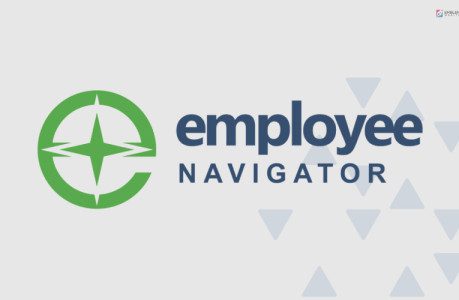Start-Up Costs For A Business: How To Calculate And Budget It?

Business owners and entrepreneurs who are just starting their businesses often find it difficult to calculate and manage the start-up costs for a business. They have to worry about many things at once, like long-term profitability, finding secure sources for startup funds, and more.
There are some studies according to which startup costs can be within $30000. Also, the cost can increase every year. Fortunately, there are businesses and costs even lesser than what the average startup cost estimate is.
However, if you are planning startup costs, then there are different elements you need to consider when calculating it. Go through the different steps provided in this article to have a clear idea about how startup cost is calculated.
Things To Include In Your Startup Cost Calculation
- Office space
- Communications
- Market research
- Employee salaries
- Insurance
- Inventory
- Utilities
- Licenses & permits
- Equipment & Supplies
- Lawyer & accountant
- Advertising & Marketing
- Printed marketing materials
- Making a website
Ways To Calculate Startup Costs For A Business

While many small business owners have an overall estimation of the startup cost they need, different needs can be very much detrimental in terms of calculation. Here are different ways to calculate the startup cost for a small business.
1. Equipment
The first important startup costs for a business include the cost necessary for equipment. There can be multiple pieces of equipment based on the necessities of a business. Depending on the industry and the business type and size, a small business owner can set calculate the cost of the equipment.
The Equipment cost can range between $10,000 to $125,000. The reason why we mentioned the type of industry is because the necessary equipment change according to the different industries someone is working in.
For example, if you are opening a food truck, then you need to invest in commercial grade overs, dishware, stove, cooking utensils, and most importantly, a truck. The same equipment can change if you are opening a barber shop instead. Also, the equipment cost will also adjust according to the size and scale of the business.
2. Incorporation Cost
This is one expense that is essential for running a business legally. A business needs to be a business entity with legal aspects, financial and tax implications.
When starting out, a small business can set itself up as an LLC or as an S Corp business. When filing for incorporation, the small business needs to pay an amount of around $300. The fees for filing for incorporation might range between $50 to $725. However, in most cases, incorporation costs remain under $300. But, keep in mind that incorporation of a business is a must-follow step for doing business legally.
3. Office Space
Office space adds yet another fixed startup cost to the business. If you are opening a retail store or a business that requires a brick-and-mortar location, then you need to invest in space. This could be for an office or a retail storefront. Depending on the type and size of your business, this cost can range between $100 to $1000 every month.
However, if you are just starting out, you can reduce your cost on this portion by operating your business from home. This is one of the most feasible ideas to operate a business till the point it grows and generates enough revenue to fund a workspace.
4. Inventory Cost
The startup cost for small businesses also includes the cost you need to spend for setting up your inventory or your manufacturing hub. If you are running a retail business, then you will probably need a secure inventory.
However, it is also necessary to understand how much inventory space your business need. This is detrimental to the amount your business generates in profit by reducing the chance of overstocking or spoilage. Especially if you are running a retail business, you need to spend 17% to 25% of your budget on inventory.
5. Marketing: Less Than 10% Of Your Total Budget
If you are starting a local business, then it would be wise not to invest too much in marketing from the get-go. Also, you will not need to spend a lot on signs, banners, and even paid ads. For local businesses mouth to mouth marketing does a lot. But, if you are going for an affordable digital marketing solution, that is also affordable. But remember to keep the marketing budget under 10% of the total estimated budget.
6. Website
Next, you will need a business website, and this is something you should not compromise on. One of the most crucial startup costs for a business is an investment in a website.
Thankfully, there are different services, such as Wix, Squarespace, & Weebly, and they provide easy and effective website solutions for an affordable price. Here is the price for different service providers –
Wix: $13 to $39/month.
Weebly: $5 to $25/month.
Squarespace: $12 to $18/month
Indeed most websites nowadays are easy to set up thanks to the drag-and-drop options. However, you may need assistance from a professional developer to set it up and maintain it for you.
7. Office Furniture
If you have an office, you need to spend a certain amount on different necessary furniture, computers, your phone, internet connection, desks, chairs, and more. This portion of the necessary startup cost needs to be limited to 10% of your total budget.
8. Payroll
You cannot get people to work for you for free. So, in the initial stage of your startup, you need to spend a certain portion of your startup cost on payroll. It can range between 25% to 50% of your total business budget. Some of the necessary payroll costs include –
- Net pay.
- Commissions.
- Bonuses.
- Overtime pay.
- Paid time off.
Final Words
There are other costs involved with running a startup. As your business grows larger, you pick up more costs. Some of the costs include consultancy services and utility costs. The business would have tax liabilities. Apart from that, there are also other additional and variable costs such as travel, shipping, and more. However, if you take the above-mentioned costs into consideration, you will have a proper estimation of your startup cost.
However, if you have any queries related to this topic, feel free to ask us through the comment section.
Continue Reading:
- Understanding the Statement of Changes in Equity: A Comprehensive Guide
- Analyzing the statement of comprehensive income: Key metrics to look out for
- Understanding the Expense Recognition Principle: What it is and Why it Matters


























Leave A Reply